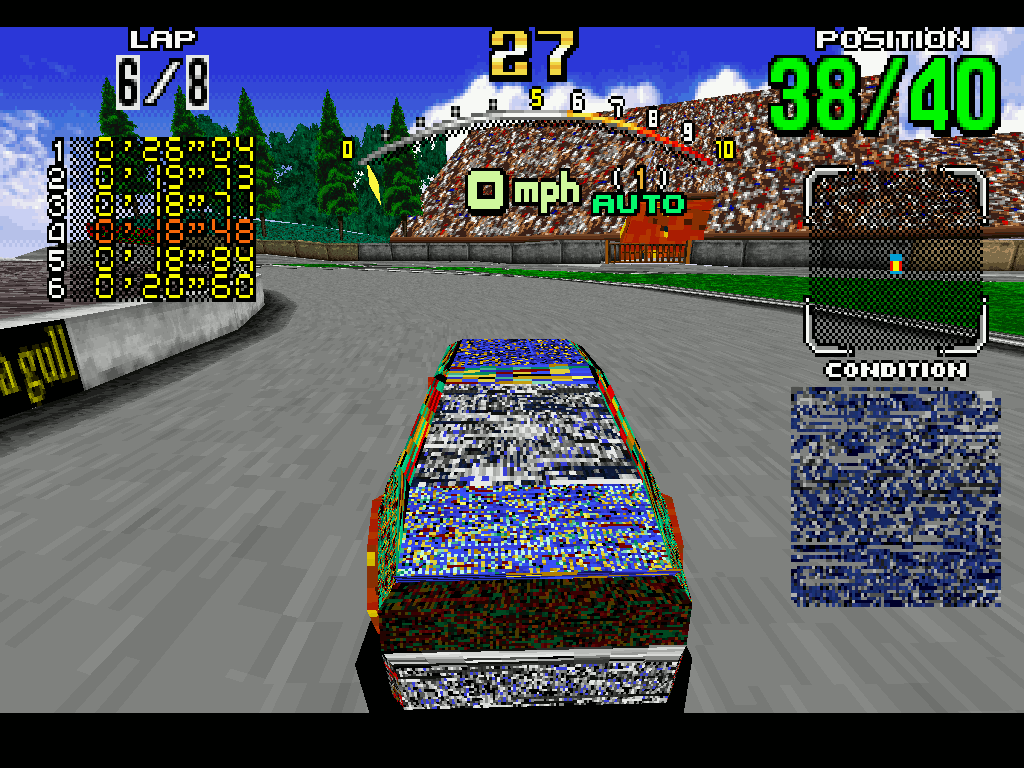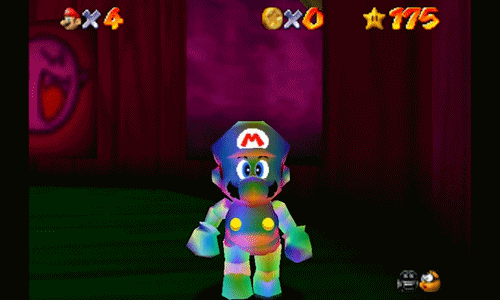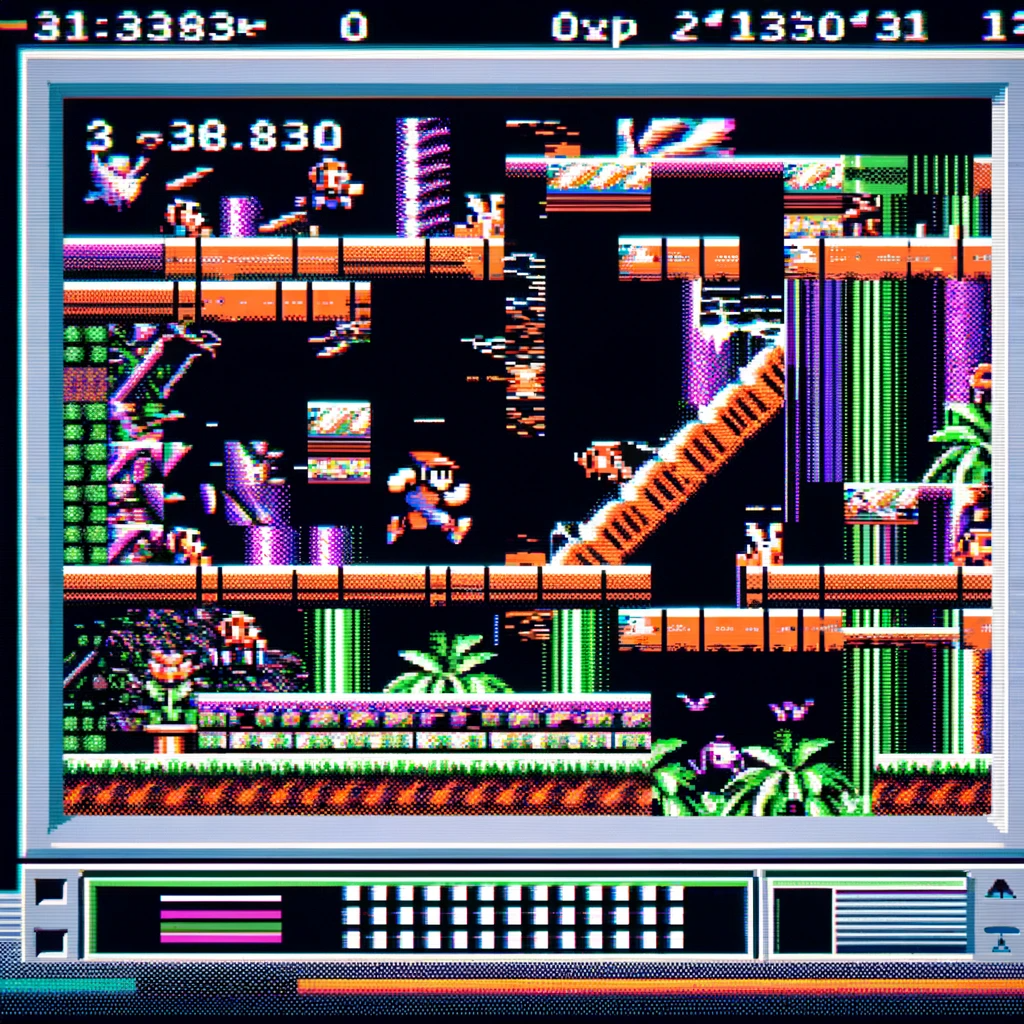Video game emulation, while offering a convenient and accessible way to play classic games, comes with its own set of drawbacks. There are definite downsides to video game emulation, the glitches, slowdowns, inauthentic experiences, and more that can sometimes mar the joy of playing our favorite old-school titles.
| Common Problems | Solutions |
|---|---|
| Graphics Glitches | Update or configure the emulator’s graphics settings; ensure accurate emulation of the console’s GPU. |
| Audio Sync and Quality Issues | Adjust audio settings for better synchronization; use plugins or updates that improve audio emulation accuracy. |
| Performance Instabilities | Optimize emulator settings for performance; upgrade PC hardware if necessary; use a more efficient emulator. |
| Input Latency | Adjust input settings; use a wired controller; minimize background processes that may affect performance. |
| Compatibility and Configuration | Update the emulator to the latest version; use game-specific patches or settings; refer to community forums for specific fixes. |
| Frame Rate Fluctuations | Enable frame skipping or adjust frame rate settings; ensure your PC meets the emulator’s system requirements. |
| Random Crashes or Freezes | Update the emulator and game ROMs; check for known issues with specific games; adjust memory settings if available. |
| Palette Problems | Adjust color settings in the emulator; ensure the emulator accurately emulates the console’s video hardware. |
| Distorted Sounds | Use audio plugins if available; adjust audio buffer sizes; update sound drivers on your PC. |
| Slowdown in High-Resolution Output | Reduce the output resolution; disable or lower graphics enhancements like anti-aliasing or shaders. |
| CPU Overhead and Processing Demands | Use a more efficient or less accurate emulator for better performance; close other resource-intensive applications. |
| Hardware Incompatibilities | Update hardware drivers; try a different emulator that may be more compatible with your hardware setup. |
| Memory Management Issues | Increase allocated RAM to the emulator if possible; close other applications to free up RAM; upgrade your PC’s RAM. |
Hardware and Software Glitches
Emulation technology has come a long way, but it’s not perfect. One of the most common issues players encounter when using emulators is hardware and software glitches. These can manifest in various ways, such as graphical anomalies, audio distortions, and even crashes. The root of these problems lies in the difficulty of accurately reproducing the original hardware in a digital environment.

1. Graphics Glitches
- Sprites and Background Issues: The charm of 8 and 16-bit games lies in their pixelated art, but emulators sometimes struggle with rendering sprites and backgrounds accurately. You might notice flickering sprites, incorrect layering of background elements, or even missing graphics. This usually stems from inaccuracies in emulating the console’s graphics processing unit (GPU).
- Palette Problems: Color palettes can also go haywire, leading to games displaying with incorrect colors. This is often due to the emulator not correctly interpreting the game’s original color data.
2. Audio Sync and Quality Issues
- Off-Sync Audio: Emulating the unique sound chips of retro consoles is a tricky affair. One common issue is audio being out of sync with the visuals, detracting from the gameplay experience. This can be due to improper timing or synchronization in the emulator’s audio processing.
- Distorted Sounds: Expect occasional audio distortions or missing sound effects. These issues arise from the complex task of accurately emulating the audio hardware of these consoles, each with their distinct sound capabilities.
3. Performance Instabilities
- Frame Rate Fluctuations: Even though 8 and 16-bit games are not resource-intensive by today’s standards, emulators can sometimes struggle to maintain a stable frame rate. This can be due to the overhead of emulation or inefficiencies in the emulator’s code.
- Random Crashes or Freezes: Emulating a game involves a delicate dance of replicating hardware behavior. Any inaccuracies can lead to crashes or the game freezing, especially at specific points or under certain conditions.
4. Input Latency
- Delayed Responses: Input latency is a frequent annoyance. There’s often a slight delay between pressing a button on your controller or keyboard and the action being executed in the game. This is particularly noticeable in fast-paced games that require precise timing.
5. Compatibility and Configuration Challenges
- Game-Specific Issues: Some games have unique hardware interactions that are tough to emulate. These titles might exhibit glitches or not run at all unless the emulator is specifically configured or patched for them.
- Complex Setup: Setting up emulators can be daunting, especially for beginners. Finding the right balance between performance and accuracy often requires tweaking various settings, which can be overwhelming.
Slowdown and Performance Issues
Running an emulator can be resource-intensive, especially when trying to achieve a high level of accuracy. This can lead to slowdowns and performance issues on less powerful devices, resulting in laggy gameplay, dropped frames, and an overall less enjoyable experience.
Imagine playing “Super Mario Bros.” on an emulator, only to have the game stutter every time you jump or collect a power-up. This kind of performance issue can be incredibly frustrating and detract from the classic gaming experience we’re all seeking.
1. CPU Overhead and Processing Demands
- Emulation Overhead: Contrary to what one might expect, emulating older, less complex hardware can be surprisingly CPU-intensive. This is because the emulator needs to translate the original console’s machine code into something the host CPU can understand. This translation process can create a significant overhead, leading to performance bottlenecks, especially on less powerful PCs.
- Accuracy vs. Performance Trade-off: Emulators aiming for high accuracy replicate every aspect of the console’s hardware, which can be demanding on the CPU. While this ensures a more authentic experience, it can lead to slowdowns, especially in games that were pushing the limits of the original hardware.
2. Graphical Rendering Challenges
- High-Resolution Output: While the original consoles output at relatively low resolutions, modern emulators often upscale these games to HD or higher resolutions. This graphical enhancement, although visually pleasing, can be taxing on the GPU, leading to framerate drops and stuttering in resource-intensive scenes.
- Enhanced Graphics Settings: Features like anti-aliasing, texture filtering, and shaders enhance the visual fidelity but can also impact performance. On systems with less powerful graphics hardware, enabling these enhancements might cause noticeable slowdowns.
3. Inefficient Emulator Code
- Optimization Issues: Not all emulators are created equal. Some might have inefficient code paths or lack optimizations for certain hardware configurations. These inefficiencies can lead to suboptimal performance, even on high-end systems.
4. System-specific Quirks
- Hardware Incompatibilities: Sometimes, the emulator might not play well with specific hardware components or drivers. These incompatibilities can manifest as random slowdowns, framerate issues, or even crashes.
- Operating System Overheads: Background processes and services running on your PC can also impact the performance of emulators. Resource-heavy applications or operating system tasks can eat into the CPU and RAM needed for smooth emulation.
5. Memory Management Issues
- RAM Constraints: Emulators often require a fair amount of RAM, especially when dealing with games that had large ROM sizes or utilized memory expansion hardware. Insufficient RAM can lead to performance issues, including longer load times and in-game stuttering.

Inauthentic Representation of the Game Experience
Nostalgia is a powerful force, and for many of us, part of the allure of retro gaming is recapturing the authentic experience of playing these games on their original hardware. Emulation, however, can sometimes fall short in this regard.
First, there’s the issue of controller feel. Most modern controllers are designed with ergonomics and functionality in mind, which is great for contemporary games but can make classic titles feel different. The tactile feedback of pressing a button on a Super Nintendo controller, for example, can’t be replicated on a modern gamepad.
Additionally, there are display discrepancies to consider. Emulators often allow for various video filters and aspect ratio adjustments, which can lead to an image that looks quite different from what you’d see on a CRT television. These factors can contribute to an experience that, while still fun, doesn’t quite capture the magic of playing on original hardware.
Playing on Hardware Not Intended for the Game
Using emulation to play games on hardware that they weren’t designed for can sometimes lead to unforeseen limitations. This can range from minor annoyances, like having to remap controls, to more significant issues that impact gameplay.
For example, playing a light gun game like “Duck Hunt” on a modern flat-screen TV is virtually impossible due to the way these games were designed to work with CRT televisions.
Legal Aspects of Downloading and Dumping ROMs
While emulation itself is legal, the act of downloading and distributing copyrighted ROMs is not. Many retro gamers face a moral and legal dilemma when it comes to building their digital game libraries.
Downloading ROMs from the internet is often considered copyright infringement, and engaging in this activity can expose users to legal risks and penalties. Additionally, ethical concerns arise when considering the impact of piracy on the game industry and the creators who poured their hearts and souls into these classic titles.
Dumping your own ROMs from original game cartridges is a more legally and ethically sound approach. However, this process can be technically challenging and time-consuming, making it an impractical option for many gamers.
ROMs That Don’t Work Correctly
There’s nothing more frustrating than eagerly loading up a newly-acquired ROM, only to find that it doesn’t work properly or at all. ROMs can be non-functional for various reasons, including corruption, incompatibility with your chosen emulator, or simply being a poorly-dumped copy of the game.
Troubleshooting and fixing these issues can be an arduous process, involving trial and error with different emulators, downloading alternative ROMs, or even diving into forums and seeking help from the emulation community. While this can be an educational experience, it can also be disheartening when all you want to do is sit back and enjoy your favorite retro games.
It’s Worth Persevering
Understanding the downsides of video game emulation is essential for anyone venturing into the world of retro gaming. While there are certainly challenges and frustrations to be faced, the passion for preserving and enjoying classic games remains undeterred.
By carefully weighing the pros and cons of emulation, we can make informed decisions about how to approach this fascinating hobby. Whether you choose to embrace emulation fully or seek out original hardware, the most important thing is to celebrate and enjoy the rich history of gaming that has brought us so much joy over the years. As retro gaming enthusiasts, it’s our shared love for these classic titles that unites us, and by navigating the challenges of emulation together, we can ensure that our favorite games continue to be cherished and enjoyed for generations to come.
So, whether you’re a die-hard purist who prefers the feel of original hardware or an avid emulator user, keep in mind that we’re all on the same team, sharing the same passion for these timeless masterpieces. As we embrace the ups and downs of video game emulation, let’s continue to support one another, share our knowledge, and celebrate the incredible world of retro gaming.
